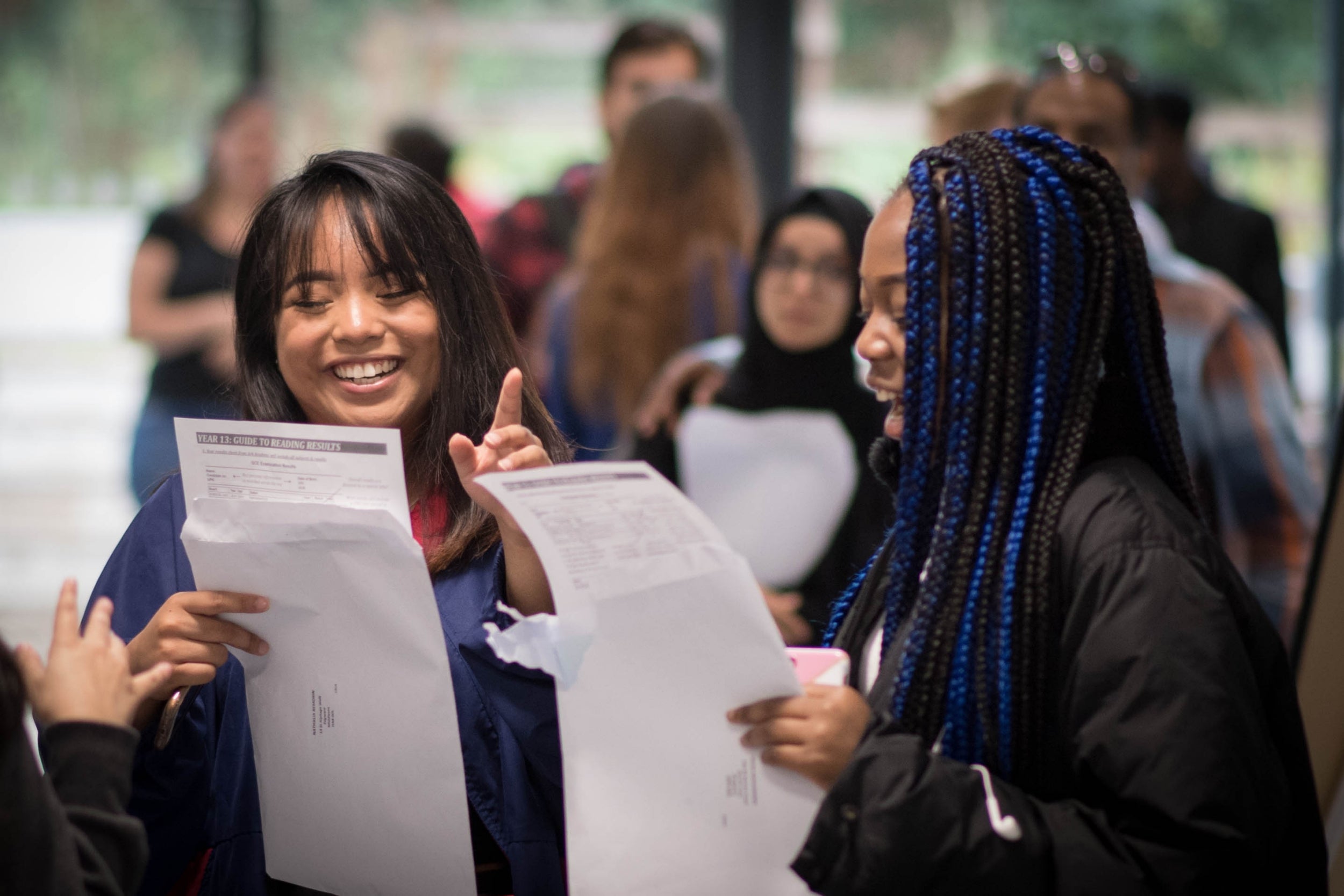Students may apply for university after receiving A-level results in admissions shake-up
Move reportedly under consideration would see academic year begin in January

Your support helps us to tell the story
From reproductive rights to climate change to Big Tech, The Independent is on the ground when the story is developing. Whether it's investigating the financials of Elon Musk's pro-Trump PAC or producing our latest documentary, 'The A Word', which shines a light on the American women fighting for reproductive rights, we know how important it is to parse out the facts from the messaging.
At such a critical moment in US history, we need reporters on the ground. Your donation allows us to keep sending journalists to speak to both sides of the story.
The Independent is trusted by Americans across the entire political spectrum. And unlike many other quality news outlets, we choose not to lock Americans out of our reporting and analysis with paywalls. We believe quality journalism should be available to everyone, paid for by those who can afford it.
Your support makes all the difference.The beginning of the academic year for university students may be pushed back from September to January with students applying for university after getting their A-level results rather than using projected grades.
A dramatic revamp of how students are admitted to university is being planned by the education secretary, according to a report in The Guardian.
The move would mark a substantial break from the present structure which sees sixth-form students rely grades predicted by their teachers when applying to university in January before taking their A-level exams at the end of spring.
Gavin Williamson, the education secretary, is said to believe the overhaul would benefit pupils from disadvantaged backgrounds and improve social mobility.
The current system sees most universities in England, Northern Ireland and Wales base their offers to potential students on personal statements, predicted grades and references.
There have long been calls for the changes to the university admissions process, while A-level grade predictions often prove to be wrong.
A 2016 study by the Institute of Education at University College London found almost one in four students from disadvantaged backgrounds who score grades of AAB or better at A-level had been predicted by teachers to perform worse.
The University and College Union (UCU) has previously argued pupils should submit their applications to universities after receiving their results.
A Department for Education spokesperson told The Independent: “We don’t comment on leaks and will not be drawn on speculation.”
Join our commenting forum
Join thought-provoking conversations, follow other Independent readers and see their replies
Comments